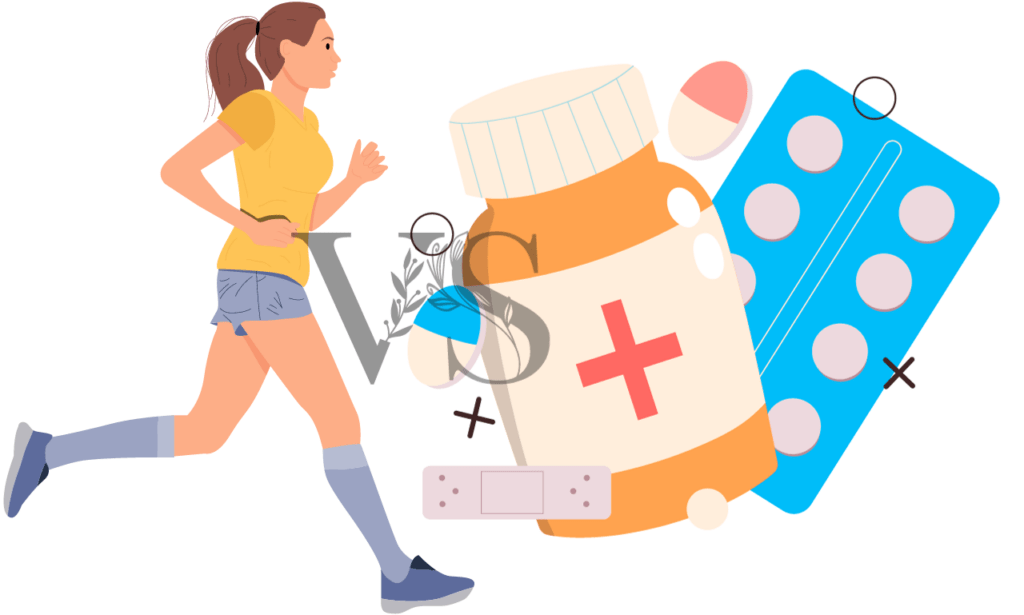Running vs. Medication: Which Works Best to Beat Depression?
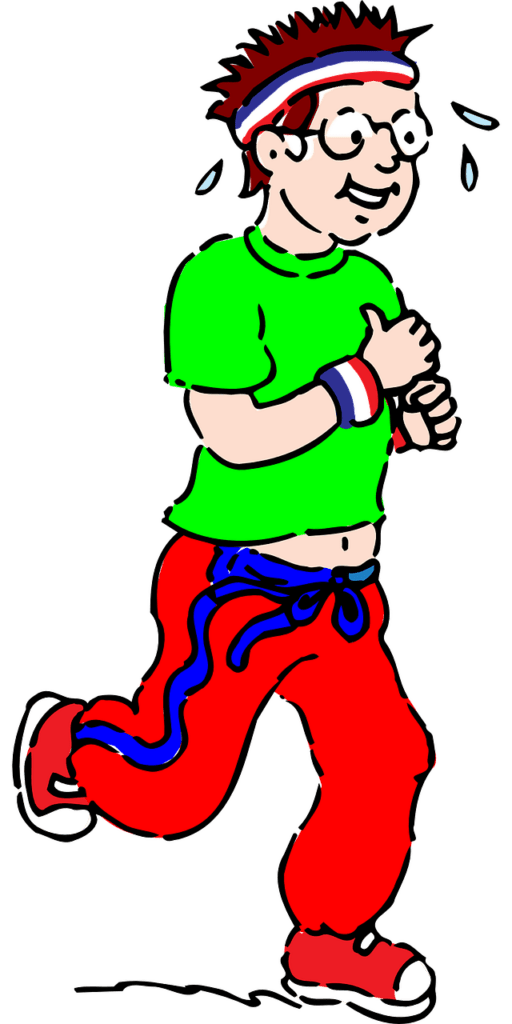
In the ongoing battle against depression, individuals grappling with this challenging mental health condition are often confronted with two primary options: running or medication. These two approaches, while distinct in nature, both hold promise in alleviating the symptoms of depression and improving overall well-being. In this article, we delve into the age-old debate of “Running vs. Meds: Which Works Best to Beat Depression?” as we explore the merits and drawbacks of each strategy, shedding light on the scientific evidence, personal experiences, and expert insights that can help individuals make informed decisions about their journey towards mental health recovery. Whether you’re someone seeking an alternative to pharmaceutical interventions or simply curious about the potential of physical activity, this article aims to provide a comprehensive overview of the choices available for combating depression, ultimately empowering you to make the best choice for your unique needs and circumstances.

Introduction: ( Running vs. Medication: Which Works Best to Beat Depression? )
1. Understanding Depression
Depression is a complex and pervasive mental health condition that affects millions of people worldwide. It is characterized by persistent feelings of sadness, hopelessness, and a lack of interest or pleasure in activities that were once enjoyed. While everyone experiences periods of sadness and low mood from time to time, depression is distinguished by its intensity, duration, and the way it interferes with daily life. 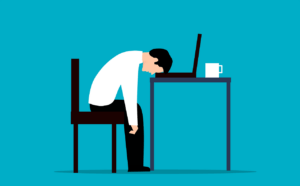
Depression is a multifaceted condition with both genetic and environmental factors contributing to its development. It can affect people of all ages, genders, and backgrounds, and its onset may be triggered by various life events, such as the loss of a loved one, chronic stress, trauma, or significant life changes.
Fortunately, depression is a treatable condition. A range of therapeutic interventions, including psychotherapy, medication, lifestyle changes, and support from friends and family, can help individuals manage their symptoms and regain a sense of well-being. It’s crucial for anyone experiencing symptoms of depression to seek help and support, as early intervention can significantly improve the prognosis and quality of life for those affected by this challenging mental health disorder.
2. The Role of Running:
The role of running in combating depression extends far beyond the realm of physical fitness. Running, as a form of aerobic exercise, has been recognized as a powerful tool in the battle against depression due to its multifaceted impact on both the body and the mind. Engaging in regular running not only promotes the release of mood-enhancing neurotransmitters such as endorphins but also fosters a sense of accomplishment and self-efficacy, which can be particularly beneficial for individuals struggling with the feelings of worthlessness often associated with depression. Furthermore, running offers a respite from the daily stressors of life, allowing individuals to disconnect from negative thought patterns and immerse themselves in the present moment. It can serve as a form of meditation in motion, providing an opportunity for introspection and emotional processing. Moreover, the social aspect of group running or simply sharing one’s running experiences with others can help reduce the isolation often linked to depression. Overall, the role of running in depression management is multifaceted, encompassing physiological, psychological, and social benefits that make it a valuable adjunctive strategy in the holistic approach to mental health.
3. The Role of Medication
The role of medication in the treatment of depression is a pivotal component of mental health care, offering a potent tool to alleviate the often debilitating symptoms of this complex condition. Antidepressant medications, such as selective serotonin reuptake inhibitors (SSRIs), serotonin-norepinephrine reuptake inhibitors (SNRIs), and tricyclic antidepressants (TCAs), work by modulating the levels of neurotransmitters in the brain, helping to restore chemical balance and mitigate the pervasive feelings of sadness and hopelessness. These medications are particularly valuable for individuals with severe or chronic depression, where the condition significantly impairs daily functioning. Medication can act as a stabilizing force, providing individuals with the necessary respite to engage effectively in psychotherapy and develop coping strategies. While the decision to use medication should be made in consultation with a mental health professional, it is important to recognize that these drugs have transformed the landscape of depression treatment, offering hope and relief to countless individuals who would otherwise struggle to find reprieve from the grips of this challenging mental health disorder.
Benefits of Running:
Release of Mood-Enhancing Chemicals: ( Running vs. Medication: Which Works Best to Beat Depression? )
Running stimulates the release of endorphins, often referred to as “feel-good” hormones, which can alleviate symptoms of depression and enhance overall mood
 .
.
Stress Reduction:
Running provides a healthy outlet for stress, helping to reduce cortisol levels and promote relaxation, which is particularly beneficial for individuals experiencing stress-related depression.
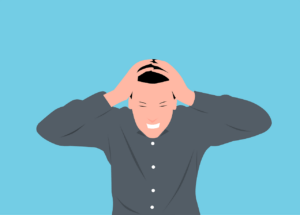
Enhanced Self-Efficacy:
Achieving running goals, such as completing a certain distance or improving one’s pace, can boost self-esteem and self-efficacy, counteracting feelings of worthlessness common in depression.
Mind-Body Connection:
Running encourages mindfulness, fostering a stronger connection between the mind and body and aiding in emotional processing, which can be therapeutic for individuals dealing with depressive thoughts.
Improved Sleep:
Regular running can regulate sleep patterns, helping those with depression combat insomnia or oversleeping, two common symptoms of the disorder.

Social Engagement:
Joining running groups or clubs can provide a sense of belonging and social support, mitigating feelings of isolation and loneliness often associated with depression.

The Benefits of Medication:
1. Alleviation of Symptoms:
Medications for depression are designed to target the underlying neurochemical imbalances associated with the condition. For instance, selective serotonin reuptake inhibitors (SSRIs) increase the levels of serotonin in the brain, which is linked to mood regulation. As a result, individuals often experience a noticeable reduction in symptoms such as persistent sadness, hopelessness, and irritability. This relief can be pivotal in providing individuals with the mental and emotional space they need to engage in therapy and develop coping strategies (Mayo Clinic, 2021).
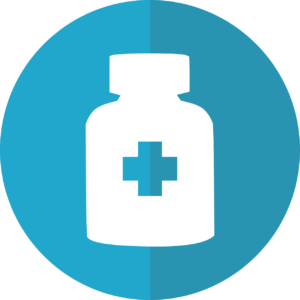
2. Rapid Relief:
In severe cases of depression, where individuals may be experiencing intense distress or even suicidal thoughts, the timely intervention of medication can be crucial. While the full therapeutic effects of antidepressants may take a few weeks to become evident, some individuals experience rapid relief from certain symptoms, such as anxiety or sleep disturbances, within days of starting medication. This immediate stabilization can be lifesaving and allows for a more manageable transition into long-term treatment (National Institute of Mental Health, 2021).
3. Improved Functionality:
Depression can significantly impair an individual’s ability to function in daily life, affecting work, relationships, and overall well-being. Antidepressant medication can help restore functionality by reducing the impact of depressive symptoms. As a result, individuals often find it easier to maintain social connections, fulfill work or academic responsibilities, and engage in activities they once enjoyed. This improved functionality contributes to an enhanced sense of self-worth and life satisfaction (WebMD, 2021).
4. Prevention of Relapse:
Consistent use of antidepressant medication as prescribed can reduce the risk of depressive relapse. By maintaining a stable mood and addressing the underlying biological factors contributing to depression, individuals are less likely to experience recurrence of their symptoms. This can lead to more sustained long-term well-being and a reduced need for crisis intervention (Harvard Health Publishing, 2019).
5. Customized Treatment:
Psychiatrists and mental health professionals have a wide range of antidepressant medications to choose from, each with its own profile of efficacy and potential side effects. This allows for a personalized approach to treatment, where medication choices can be tailored to an individual’s specific symptoms, preferences, and medical history. This customization increases the likelihood of finding the most effective medication with the fewest side effects for each patient (American Psychiatric Association, 2020).
6. Enhanced Quality of Life:
Depression can be emotionally and psychologically debilitating, diminishing an individual’s overall quality of life. Antidepressant medications can significantly alleviate the emotional burden of depression, allowing individuals to experience improved mood, better self-esteem, and a greater sense of well-being. With a reduction in depressive symptoms, individuals often regain the ability to enjoy life, pursue their goals, and engage in meaningful activities (National Alliance on Mental Illness, 2021).
7. Adjunctive to Therapy:
Medication and psychotherapy can work synergistically to address depression. Medication can provide a stable foundation by reducing the intensity of symptoms, making it easier for individuals to engage effectively in therapy. By addressing the chemical imbalances in the brain, medication can facilitate the emotional and cognitive capacity necessary for individuals to explore and address underlying issues contributing to their depression in psychotherapy sessions (Mayo Clinic, 2021).
These benefits underscore the significant role that medication plays in the comprehensive treatment of depression, offering a lifeline to those in need and increasing the likelihood of recovery and long-term well-being.
Comparing Running vs. Medication
Running:
Long-Term Impact:
Running can have a significant long-term impact on depression. Over time, regular running has been associated with sustained mood improvements, reduced risk of relapse, and enhanced overall well-being. The cumulative effects of improved physical fitness, increased self-esteem, and stress reduction contribute to its enduring positive impact.
Side Effects:
Running is generally free of the side effects commonly associated with medications. However, the risk of physical injury, particularly with overtraining or improper form, should be considered. Injuries can lead to setbacks in running routines and may affect one’s emotional well-being.
Complementary Approaches:
Running can be highly complementary to other depression management strategies. It can work in tandem with psychotherapy, enhancing the effectiveness of both approaches. Running can also complement medication, particularly in cases where individuals wish to reduce their reliance on medication over time.
Medication:
Long-Term Impact:
Medication can have a significant long-term impact by reducing or eliminating depressive symptoms. With consistent use and under the guidance of a healthcare professional, individuals can experience sustained relief from depression. Some individuals may choose to continue medication for an extended period to maintain stability.
Side Effects:
Antidepressant medications can have side effects, which vary depending on the specific medication and individual response. Common side effects include nausea, weight gain, sexual dysfunction, and sleep disturbances. The long-term use of medication may require monitoring for these side effects.
Complementary Approaches:
Medication can complement other forms of treatment, such as psychotherapy. It can provide a stable foundation for individuals to engage in therapy effectively. Combining medication with therapy often yields the most comprehensive approach to addressing depression, allowing individuals to address both the biological and psychological aspects of their condition.
In conclusion, the choice between running and medication in the treatment of depression is a complex one. Both approaches have their unique advantages and considerations. The decision should be made based on individual preferences, needs, and guidance from healthcare professionals. For many individuals, a combination of both running and medication, along with other complementary strategies, can offer a well-rounded approach to managing depression.
Making an Informed Choice
When facing the challenge of depression, choosing between running as a therapeutic tool and medication is a significant decision. To make an informed choice, it’s essential to consider various factors, including consulting professionals, lifestyle considerations, and personalized treatment plans.
1. Consulting Professionals:
Healthcare Providers:
The first step in making an informed choice is to consult with healthcare professionals. A mental health provider, such as a psychiatrist, psychologist, or therapist, can assess your condition, its severity, and your specific needs. They can provide valuable insights into whether running, medication, or a combination of both is most suitable for your situation.
Individualized Assessment:
Healthcare professionals can conduct an individualized assessment of your depression. They consider factors such as the duration and severity of your symptoms, any coexisting conditions, past treatment history, and personal preferences. This assessment helps tailor the treatment approach to your unique circumstances.
2. Lifestyle Considerations:
Daily Routine: Consider your daily routine and how running or medication fits into it. Running may require time, discipline, and access to appropriate facilities, which can be challenging for some individuals. On the other hand, medication often involves regular dosing and potential side effects that may impact daily life.
Physical Health:
Assess your physical health and fitness level. Running may be more appealing and effective for those who are physically active, while medication may be a better choice for individuals who have physical health concerns or limitations.
Social Support:
Consider your social support network. Running can provide opportunities for social engagement, while medication may not have a direct social aspect. Evaluate which option aligns with your need for social interaction and support.
3. Personalized Treatment Plans:
Combination Approach:
It’s essential to recognize that the choice between running and medication is not necessarily an exclusive one. In many cases, individuals benefit from a combination of treatments. A personalized treatment plan may involve both running and medication, psychotherapy, or other complementary strategies, depending on your needs.
Periodic Evaluation:
A personalized treatment plan can be dynamic. Healthcare professionals should regularly evaluate your progress and adjust the treatment plan as needed. This ensures that your treatment remains effective and responsive to changes in your condition.
Holistic Considerations:
A comprehensive approach to treatment should take into account not only the immediate relief of symptoms but also long-term well-being. Evaluate how running and/or medication can contribute to your overall mental and physical health, as well as your quality of life.
In conclusion, making an informed choice between running and medication in the treatment of depression involves a thorough assessment of your specific circumstances. By consulting with healthcare professionals, considering your lifestyle and daily routine, and embracing a personalized treatment plan, you can develop an approach that is most likely to be effective for you. Ultimately, the decision may involve a combination of strategies that addresses the multifaceted nature of depression, ultimately leading to a path of healing and recovery.
Conclusion:
In the ongoing debate of running vs. medication for treating depression, there is no one-size-fits-all answer. Both methods have their merits, and the choice should be based on individual circumstances and preferences. Remember, seeking professional guidance is crucial when dealing with depression to ensure the most effective treatment plan.
FAQs:
1. Can running alone completely cure depression?
Running can be a valuable tool in managing depression, but it may not be a standalone solution for everyone. Consult a healthcare professional for guidance.
2. Are there any risks associated with antidepressant medications?
Like any medication, antidepressants can have side effects. It’s essential to discuss potential risks and benefits with your doctor.
3. How long does it typically take for running to show its effects on mood?
The timeframe for experiencing mood improvements through running can vary widely from person to person. Consistency is key.
4. Can I continue my medication while incorporating running into my routine?
Yes, many individuals choose to combine medication with a regular running regimen. It’s essential to discuss this with your healthcare provider.
5. Are there any alternative treatments for depression besides running and medication?
Yes, there are various alternative treatments, including therapy, mindfulness practices, and dietary changes. Discuss these options with a mental health professional.

